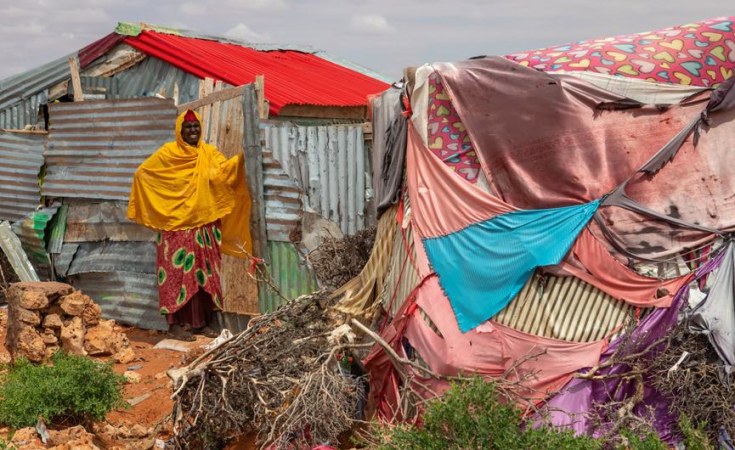The International Monetary Fund and the World Bank approved $4.5 billion in debt forgiveness for Somalia Wednesday after the Horn of Africa nation completed years of financial reforms under the Heavily Indebted Poor Countries Initiative, or HIPC.
The initiative was launched in 1996 by the IMF and the World Bank to help the world's poorest countries achieve debt sustainability.
In a statement, the IMF and the World Bank said the debt relief will ''facilitate access to critical additional financial resources that will help Somalia strengthen its economy, reduce poverty, and promote job creation.''
''Following HIPC Completion Point, Somalia's external debt has fallen from 64 percent of GDP in 2018 to less than 6 percent of GDP by end 2023,'' the statement added.
The Somali government welcomed the debt forgiveness.
''It's a huge milestone, and we are really proud,'' Minister of Finance Bihi Egeh told VOA in an interview.
''To see that Somalia has reached the completion point, it entails a huge achievement. At the same time, it's also a huge responsibility, because Somalia has to stand on its feet and sustain on the reform gains that has been made over the years and enhance domestic revenue mobilization,'' Egeh said.
Somalia is the 37th country to complete the HIPC process, which has been in place since 1996.
The debts are from 1991, when former President Mohamed Siad Barre was ousted, and the state collapsed.
World Bank Country Manager Kristina Svensson said the move gives Somalia a new beginning on its journey to boost the economy.
''This is a huge debt relief for Somalia,'' Svensson told VOA Somali in an interview. ''This means a fresh start for Somalia, and it's a very important signal to investors, to [the] private sector.''
The Somali Cabinet in October approved over a $1 billion for next year's budget, most of it expected to come from external support, as the Somali government is yet to collect revenue from the entire country. Most of the revenue the government currently relies on comes from Mogadishu's seaport and airport.
Svensson said it is important that the government raises domestic revenues. She said it would be challenging for Somalia to take new loans now that the debt is forgiven.
''Because of the very low revenue, just like if you have a credit card, and you cancel all the debt, you cannot just start taking new debt if you do not have income,'' she said.
''Because the revenues are so low, it will be very challenging for Somalia to take on any debt that is not highly concessional, which means they have very favorable conditions.''
Egeh said the government is committed to increasing domestic revenue from its current level of $345 million annually. He said he is not planning to take on new loans.
''We are actually striving to enhancing and strengthening our domestic revenues so that we will be able to meet our domestic operations, and in the near future to also cover some of the development needs,'' he said.
Svensson said Somali authorities have shown commitment to reforms, not only during one administration. She said international financial institutions want to see Somalia continue reforms.
''There was one HIPC Completion Point trigger that was not achieved, and that was related to harmonization of customs tariffs and implementation of the same customs tariffs in the ports of Kismayo, Bossaso and Mogadishu,'' she said.
She cited ''political challenges'' for the lack of implementation of the tariff harmonization.
''That is a sign this reform needs to continue ... there needs to be an intergovernmental agreement on customs.''
She said Somalia recently joining the regional East African Community economic bloc will be an additional incentive for this reform to happen, because an EAC goal is for countries to harmonize customs regimes.


